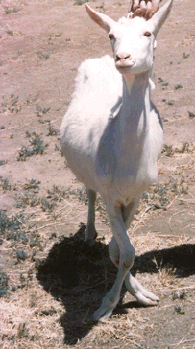I am feeding our sheep/goat/donkey herd organically. Still in the process of feeling out the correct amount of feed. They have been getting supplimental grain through summer because their pasture is pretty bad (hopefully rotationally grazing next year will begin to bring it back), but now that it is winter I started feeding them hay. Its an orchard grass mix, second cutting. They weren't eating much of it which made me think they were getting way too much grain, so I cut it in half over the coarse of five days and now they are finishing their hay.
Is it wrong of me to put them on an all hay diet at the begining of winter when they are used to grain? Grain is bloody expensive and eventually we want an all grass fed herd. From all my reading this should be acheivable as long as pregnant or lactating does are given supplimental grain to increase protein. But you could give them alfalfa instead of grain for the extra protein, correct?
Is orchard grass rich enough to sustain them (no pregnant or lactating mothers this year) through winter or should I continue to add a little grain in their diet? I have been struggling through reading trying to figure out sheep/goat nutritional needs. Am I right in calculating that they need feed of 12% protein for maintenance? I think dried orchard grass is 8% do to leaching...
And rams require less protein, right? They can have complications if fed too high a protein, so something lower, like 8% might be better?
Thank you for any advice!
Is it wrong of me to put them on an all hay diet at the begining of winter when they are used to grain? Grain is bloody expensive and eventually we want an all grass fed herd. From all my reading this should be acheivable as long as pregnant or lactating does are given supplimental grain to increase protein. But you could give them alfalfa instead of grain for the extra protein, correct?
Is orchard grass rich enough to sustain them (no pregnant or lactating mothers this year) through winter or should I continue to add a little grain in their diet? I have been struggling through reading trying to figure out sheep/goat nutritional needs. Am I right in calculating that they need feed of 12% protein for maintenance? I think dried orchard grass is 8% do to leaching...
And rams require less protein, right? They can have complications if fed too high a protein, so something lower, like 8% might be better?
Thank you for any advice!

